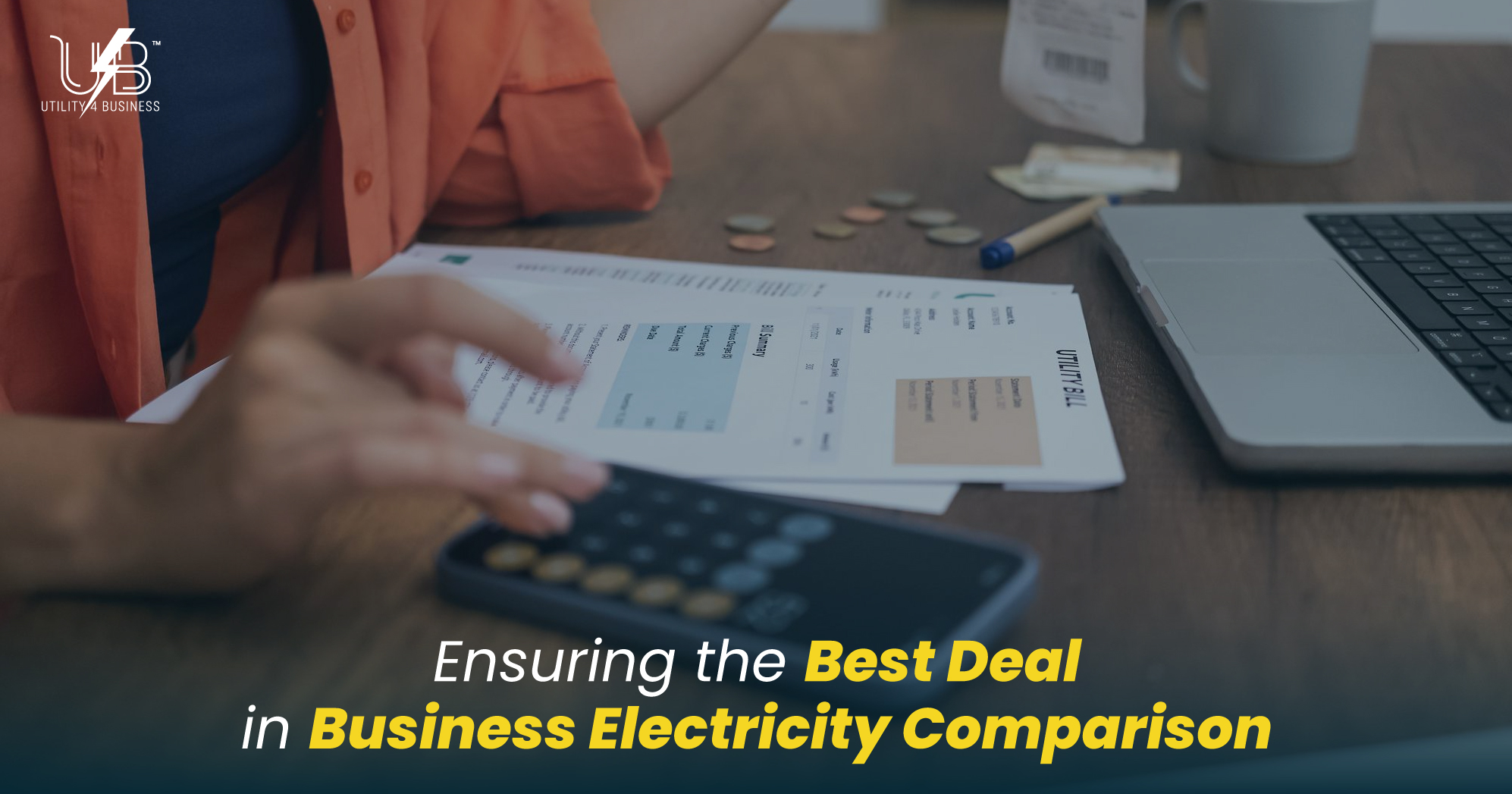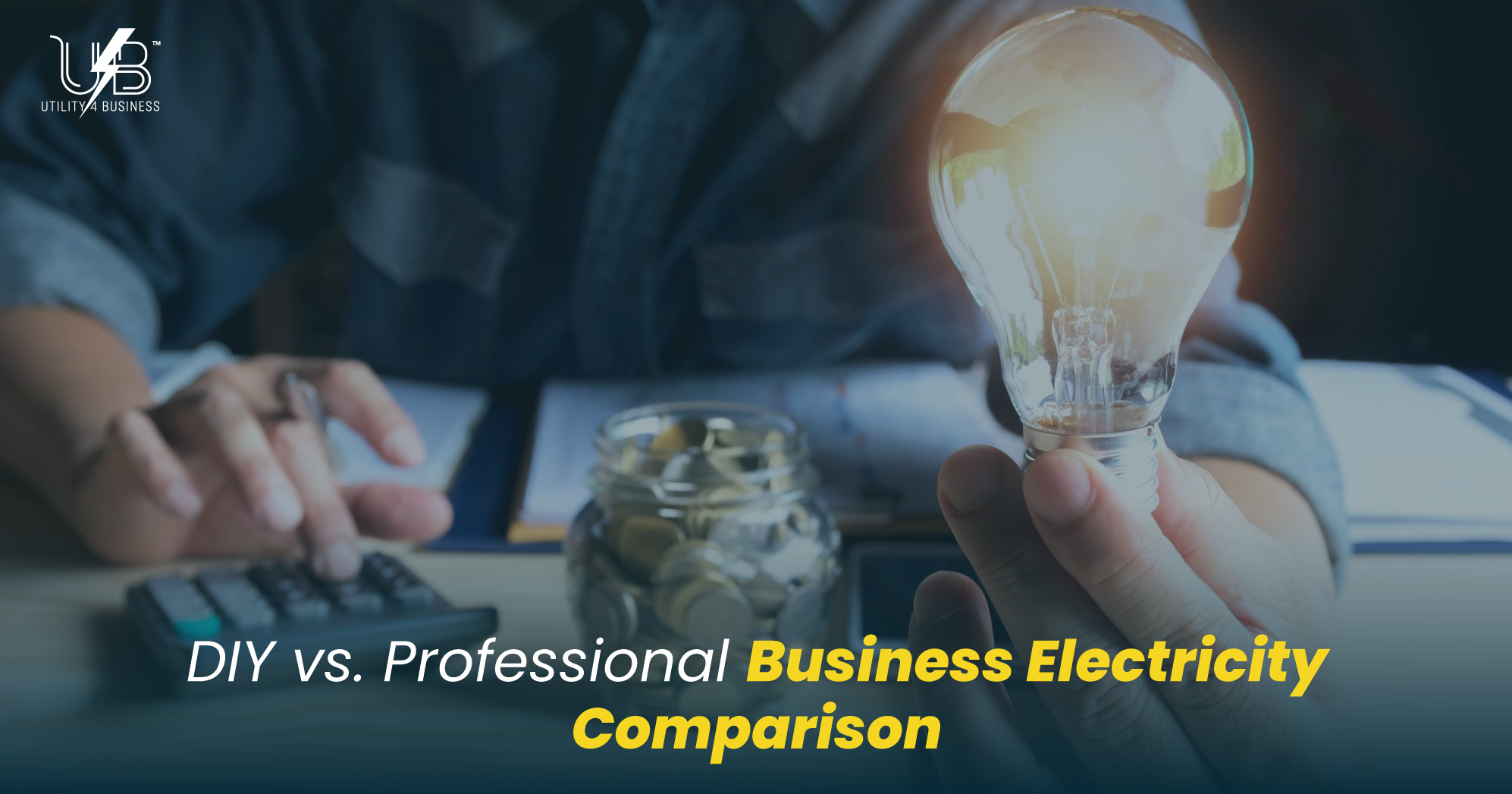Ensuring the Best Deal in Business Electricity Comparison
Compare UK business electricity deals

Energy costs change fast. One offer can look attractive today and feel expensive by the next quarter. Contracts vary, standing charges differ, and each site uses power in its own way. Getting the best deal is not only about finding the lowest pence per kWh on a headline. It is about lining up the whole contract with how the business actually runs. That is where a smart business electricity comparison makes the difference.
What “best deal” really means
The best deal is one where you balance cost, certainty and flexibility. It starts with the total you will pay across a full year, not only the unit rate. Bills include a standing charge, a unit rate, VAT, and the Climate Change Levy. Some contracts include extra pass-through items for network or policy costs. A strong business electricity price comparison looks at all of this, then checks how each option fits your usage pattern and growth plans. A warehouse with a steady base load needs something different from a café with sharp peaks. If service matters, factor in response times, billing accuracy, and the ease of getting live data. A low rate that causes admin headaches is not a good value.
Prepare before comparing
Good quotes depend on good data. Gather the last 12 months of kWh for each meter so suppliers can price against real use. Note the MPAN and meter type, the contract end date, and any notice period. Check whether any sites qualify as microbusinesses, because rules and support differ for those accounts. If you pay by Direct Debit, say so, as the payment method can change the price. If you have half-hourly data, keep it ready. The clearer the picture, the sharper the pricing. A compare business electricity requests with full details avoids loose estimates and saves time.
Understand your contract types so that you can compare like-for-like.
Fixed-rate contracts provide a unit rate that is 'locked' for the full contract term. While your bill can still rise or fall based on consumption, the price per kWh is constant.. This helps with budgeting and suits many SMEs. Variable or flexible contracts track the market. Prices can move down, but they can also move up. These formats suit businesses with a higher risk appetite or the need for short-term cover. Some contracts use pass-through pricing for items such as distribution charges. Others offer time-of-use rates with cheaper night periods or banded hours. Only compare options that use the same structure and assumptions. A fair commercial electricity comparison looks at the same term length, the same metering set-up, and the same expected annual kWh.
Why metering and data matter
Smart and AMR meters support accurate reads and help remove estimated bills. If demand spikes in the afternoon, a half-hourly profile will show it and guide the right contract. With half-hourly data, suppliers can price to the shape of your load, not only the total. This can cut costs when the profile is smooth, or when more consumption sits in cheaper periods. If a site is close to the threshold for half-hourly, consider an upgrade before renewal and use the interval data to strengthen the business energy comparison.
The tax and levy items that change the final bill
Most businesses pay 20% VAT. Some sites qualify for the 5% rate if consumption is very low or if the use falls under specific categories, such as charitable non-business activity. The Climate Change Levy applies to business electricity unless there is a relief in place, for example, via a Climate Change Agreement. Check the de-minimis thresholds for low usage because they trigger the 5% VAT rate and remove CCL for the eligible portion. Confirm which sites sit under which rules before asking for quotes. A UK business electricity comparison that includes VAT and CCL on the same basis across all options gives a true picture.
Using a broker or going direct
Many businesses use a broker or a comparison service to reach more suppliers and save time. The right partner should explain fees clearly and provide written confirmation of how they get paid. A professional service will also ask for permission to act on your behalf, share a full quote breakdown, and keep records of all offers. Utility4Business provides this level of clarity and treats fee transparency as standard practice. When using any partner, ask for final prices that include all costs and taxes, and keep a copy of every quote and contract summary.
How to compare quotes the right way
A strong business electricity comparison sets the same terms for every supplier. Use one set of annual kWh for the whole exercise and make clear which meters and sites the price covers. Ask each party to price the same contract length and state whether rates are fully fixed or part pass-through. Confirm standing charges, any time-banded rates, payment method, and any extras. Check the renewal and exit rules. Some contracts include notice windows or early exit fees. If you plan to grow or open new sites, ask how the price changes with volume and whether you can add meters mid-term. Finally, match the first bill against the signed offer as soon as it arrives. Any difference should be raised at once.
Green electricity and what certificates mean
Many offers include renewable electricity. In the UK, suppliers back these claims with REGOs. These certificates are a form of signature detailing that a unit of electricity has come from a renewable source in a specified period. REGOs support reporting and can help against sustainability targets. They do not always prove investment in new projects on their own. If the business cares about impact, ask for details on sourcing and any added schemes. When running a business electricity price comparison, note whether green electricity costs the same as standard power or includes a small premium. Some businesses choose a mixed approach, using green for public-facing sites and standard power elsewhere. The best choice depends on brand goals and budget.
Timing the switch and avoiding bill shocks
Deemed or out-of-contract rates are usually the most expensive tariffs a site can face. These apply when a contract ends without a new one in place. Avoid this by starting the compare business electricity process three to six months before the end date. Early action also creates room to pick a contract length that suits the market.
Strengthen your negotiating position
Suppliers price risk as well as energy. Clean data reduces that risk. Pay on time and keep meter reads up to date to build a strong credit profile. Share half-hourly data where available so pricing reflects your true pattern, not an industry average. If you run several sites, consider a group purchase under one contract or a common end date. Volume helps.
Pitfalls that push costs up
A very low unit rate can hide a high standing charge. Time-of-use bands can push costs into expensive hours if the site peaks at the wrong time. Pass-through elements can shift mid-term and change the cost shape if not managed. Contract auto-renewals can roll sites to poor terms if nobody tracks dates. All of these issues disappear when the review process is smooth and well-timed, and when the business electricity comparison is strict about like-for-like inputs. Keep the data clean, lock dates into a simple calendar, and hold a single file with all quotes and contracts.
Conclusion
Securing the right energy deal is a process, not a guess. Strong data, clear like-for-like quotes, and the right contract format make the difference between a short-term saving and a stable result over the full term. A careful business electricity comparison looks beyond headline p/kWh and tests the full cost, including standing charges, VAT, CCL, and any pass-throughs. Timing also matters. Planning renewals three to six months ahead avoids deemed rates and keeps choice on your side.
For UK businesses, the goal is simple: a contract that fits usage, supports cash flow, and reduces admin. A professional business electricity price comparison achieves that by matching term length, metering, and green options to real-world needs. With the right partner, this process stays fast, clear, and documented.
Find This Article Helpful? Share It Now!
At Utility4Business, we offer top-notch customer support and business utility solutions for businesses across the UK. Consider sharing this article and helping others discover how our expertise can add value to their business success.

Read Our Latest Posts
Explore our latest blog posts and learn how Utility4Business can support your business growth with tailored utility solutions and services. Stay ahead of the curve with the latest information from industry experts and take advantage of our user-friendly comparison services to find the best business deals.


Get Connected
At Utility4Business, our team of experts can help you figure out the highest-value business utility deals that will help your business grow over time.


